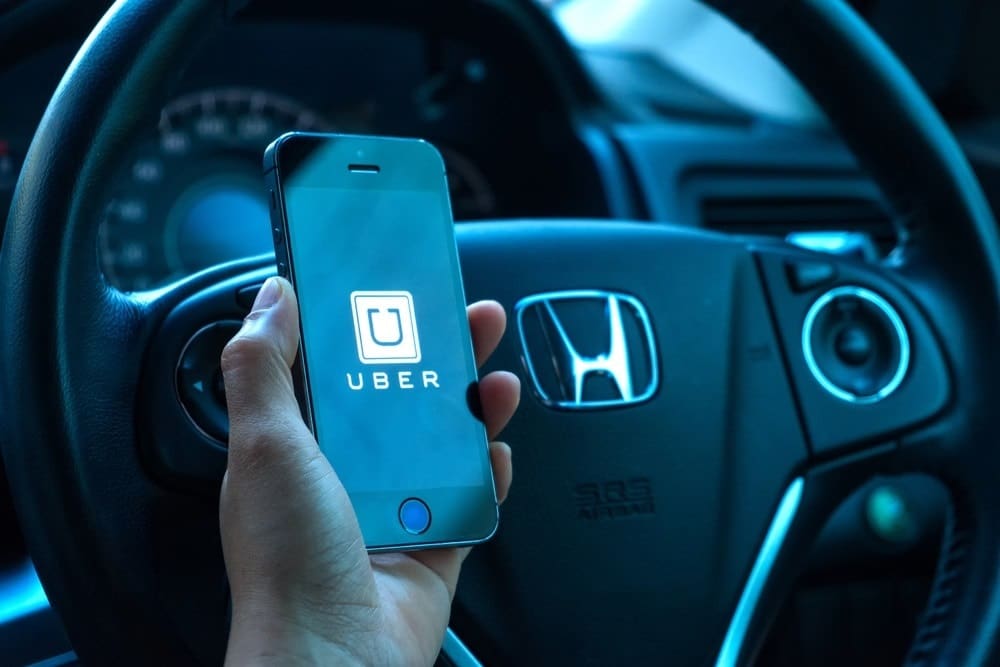Trouble Remains for Uber and Others
As Uber faces being banned from operating in London mainly due to compliance problems, it’s time to face up to the fact that Uber, and the wider gig economy, has a real compliance problem. From wrongly classifying works as self-employed to tax evasion, the problems of compliance and the gig economy aren’t going away.
“Don’t get in strangers’ cars.” It’s one bit of youthful nostalgia that hasn’t aged well. In cities across the world, we can summon strangers from the internet to take us home in the middle of the night or to work when we’re running late.
But not in London for very much longer. The city’s mayor, Sadiq Khan, has decided to heed those childhood warnings and not renew the private hire license for the ride-sharing company, essentially banning it from the capital. Despite at least half a million people signing a petition demanding it remain amid serious concerns about the safety of London’s transport system and the effect of the ban on women in particular, one of the main reasons for not renewing Uber’s license was passenger safety.
Uber has been no stranger to controversy. It’s already been banned from a number of major cities due to its business practices and had to contend with sexual harassment scandals from company HQ to its drivers on the street. While it may thrive in the individualistic deregulated marketplaces of America, across the pond, the whole concept of the gig economy is crashing head first into the British way of doing things.
It’s one thing for an individual to hire an Uber, but if a company, with all its legal obligations, does the same thing without proper due diligence or policies in place, it could cause a compliance nightmare. As soon as a business uses a gig app, that supplier, whoever they are, becomes part of the supply chain. With around 14 million Brits taking part in some form of independent work, whether traditional freelance or through a new gig economy app, the potential compliance risks are growing by the day.
It’s been one year since Uber lost a milestone employment tribunal that ruled its “self-employed” workers were nothing of the sort and actually entitled to holiday pay, sick pay and the minimum wage.
One major unresolved question from that ruling is who pays the VAT on an Uber ride? Should the employment tribunal ruling from last year stand, a ride in an Uber becomes a “VATable” service that right now neither the passenger, the driver nor the company pays. If 20 percent suddenly has to be added to every single Uber ride as regular taxis must pay, does this app-based alternative become that much cheaper?
Perhaps Uber will decide to pull out of the U.K. entirely. If its drivers become classified as workers, the National Insurance contributions alone for Uber will add up to at least £150 million per year. Plus someone will owe Her Majesty’s Revenue and Customs (HMRC) another £20 million in VAT on the company’s £115 million in fares last year. Falsely classifying workers as self-employed is costing the U.K. up to £314 million per year in lost tax and national insurance contributions and the courts continue to rule against companies who wrongly classify their workers to save on tax.
Hidden profits and tax evasion is just one aspect of the compliance conundrum the gig economy presents. The disruptive business model is also disrupting traditional employment practices and even basic expectations of workers’ rights. HMRC is investigating hundreds of complaints against delivery company Hermes for paying their “self-employed” workers as little as £3.50 an hour.
Researchers have found significant evidence of bias against female programmers or workers with black-sounding names on some of the major gig apps, including Fiverr, TaskRabbit and AirBnB.
While AirBnB recently updated its discrimination policy to prevent such abuses, it doesn’t stop others from letting bias influence their ratings of service providers on gig apps. Users of gig economy apps can also find themselves on the wrong side of discrimination. While the Equality Act clearly covers private-hire taxi firms and many drivers are trained in moving and handling and are happy to take guide dogs and wheelchairs, Uber drivers don’t have to take any mandatory training before switching on their Uber app. Some drivers have been fined for not taking guide dogs, and businesses that rely on Uber to transport their staff or customers could find they have breached the Equality Act if something goes wrong.
Whether or not London was right to delete Uber, it was right to call attention to the fact that the disruption caused by the gig economy has significant ripples that affect more than just the industry. Uber, and the wider gig economy marketplace, have serious compliance problems that aren’t going away. When the business model can only survive on operating outside the normal rules of the system, everyone from investors to customers must realise that the system will fight back and, more often than not, the system will win.










